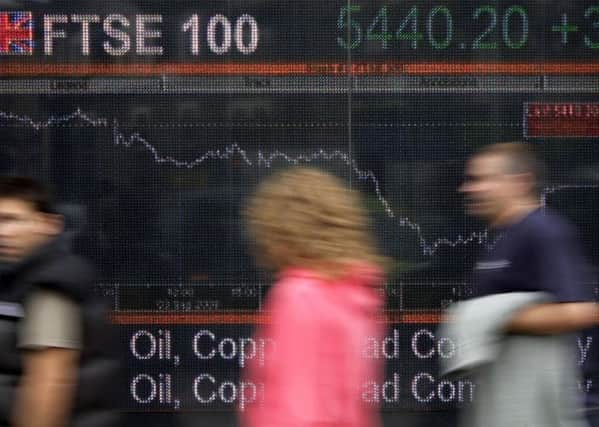Book review: Mammon’s Kingdom by David Marquard


Mammon’s Kingdom,
David Marquard
Allen Lane, 258pp, £20
In anti-intellectual Britain, on the other hand, political philosophers never become household names, no matter how influential they are behind the Westminster scenes. One such is Cardiff-born David Marquand. Now edging 80, Marquand has been toiling in the boiler rooms of British left-wing politics for more than half a century. This latest book shows his brain cells are still firing.
Marquand sits squarely on the right of the Left. No Bennite or Trot, the words “middle class” and “progressive” fit him to a tee. His career and political gyrations follow the odyssey of the right wing of British social democracy – liberal rather than authoritarian, pro-European rather than faux internationalist, and redistributist rather than a nationaliser. Over the decades Marquand has been a cheerleader for Hugh Gaitskell, then for Roy Jenkins, and then for Jenkins’s SDP breakaway from Labour. He became a Lib Dem when the SDP fused with David Steel’s old Liberals, then returned to Labour to cheer on Tony Blair, before denouncing the pro-market Blairites for abandoning muscular social engineering.
Advertisement
Hide AdAt heart, Marquand has always retained an overriding belief in the public realm and the efficacy of crafting public institutions for the greater good. His new book is a clarion call against the collapse of the true public realm in Britain. This collapse stems from the victory of individualism and the free market over communitarian values and over public provision to protect the weak and ensure equality. Along the way, the institutions and culture of a functioning, civilised society have atrophied.
Gone are strong, progressive civil servants such as Lord Reith and William Beveridge. Gone are the trade unions, economic dinosaurs maybe, but guarantors of fair wages and a useful social counterweight to the insane greed of the City of London. Meanwhile, the all-conquering libertarian philosophy of Hayek and the Chicago School has infected not only the universities but destroyed the intellectual basis for the public realm. We are now reaping the social and economic consequences: endemic asset bubbles, widening inequality and the erosion of popular faith in democratic institutions.
Marquand’s bill of indictment is hardly novel. The erosion of civil society and community values under the stress of widening income differentials is a common theme, even on the traditional Tory right. Witness Ferdinand Mount’s recent work The New Few: or A Very British Oligarchy, which reads as if it was written by a member of Ed Miliband’s Shadow Cabinet, except that Mount was head of Mrs Thatcher’s Downing Street Policy Unit in the early 1980s. The redeeming part of the book is Marquand’s attempt to revive a specifically British (actually English) canon of political thinkers who can help us “re-imagine” a better society. He harks back to the social welfare revolution of the mid-20th century, which he puts down to a “revolution of sentiment”. Dismissing the present political parties as useless, he wants a new cultural revolution, led by the philosophers, of course. OK, it’s corny but it’s also brave.
Unfortunately, the only philosophers Marquand has to mind are Burke, Mill and Tawney – a rather whiskery trio – plus a dash of Amartya Sen. Actually, I think John Stuart Mill is worth disinterring. He combines a rare understanding of capitalism with an appreciation of the need to reform it (not just write utopian tracts). Yet Mill is insufficient to stoke a modern intellectual revolution. And Marquand seems hardly aware of influential contemporary social critics outside the UK, for instance Roberto Unger or Thomas Piketty.
Marquand’s donnish detachment goes further. It is stretching credibility that he can write a major book about the crisis of the public realm in Britain yet fail to discuss (except in a passing mention) the Scottish independence referendum. For in the sense that Scotland is the very laboratory for the debate regarding the public realm. The emergence of a distinct Scottish politics and polity is not about defending a traditional national identity. Instead Scotland – working class and middle class – rejected Thatcherite individualism and the marketisation of public services. Devolution, when it came eventually in 1997, was seen locally as a way of defending the 1945 social contract north of the Border (Marquand’s “revolution of sentiment”), regardless of what happened in England.
Journalist Alan Cochrane, co-author with me of a book debating the pros and cons of independence, chides the Scottish Parliament for inaction compared with the radical agenda being pursued by David Cameron and Michael Gove. Nonsense. The radical consensus of the Scottish Parliament lies precisely in not dismantling the public realm. If there is a Yes vote in September, it will be determined by traditional Labour voters rejecting the kind of society being criticised by Marquand. Strange, then, that Marquand ignores the Scottish example of how to build such a consensus to reject the assault on the public realm.